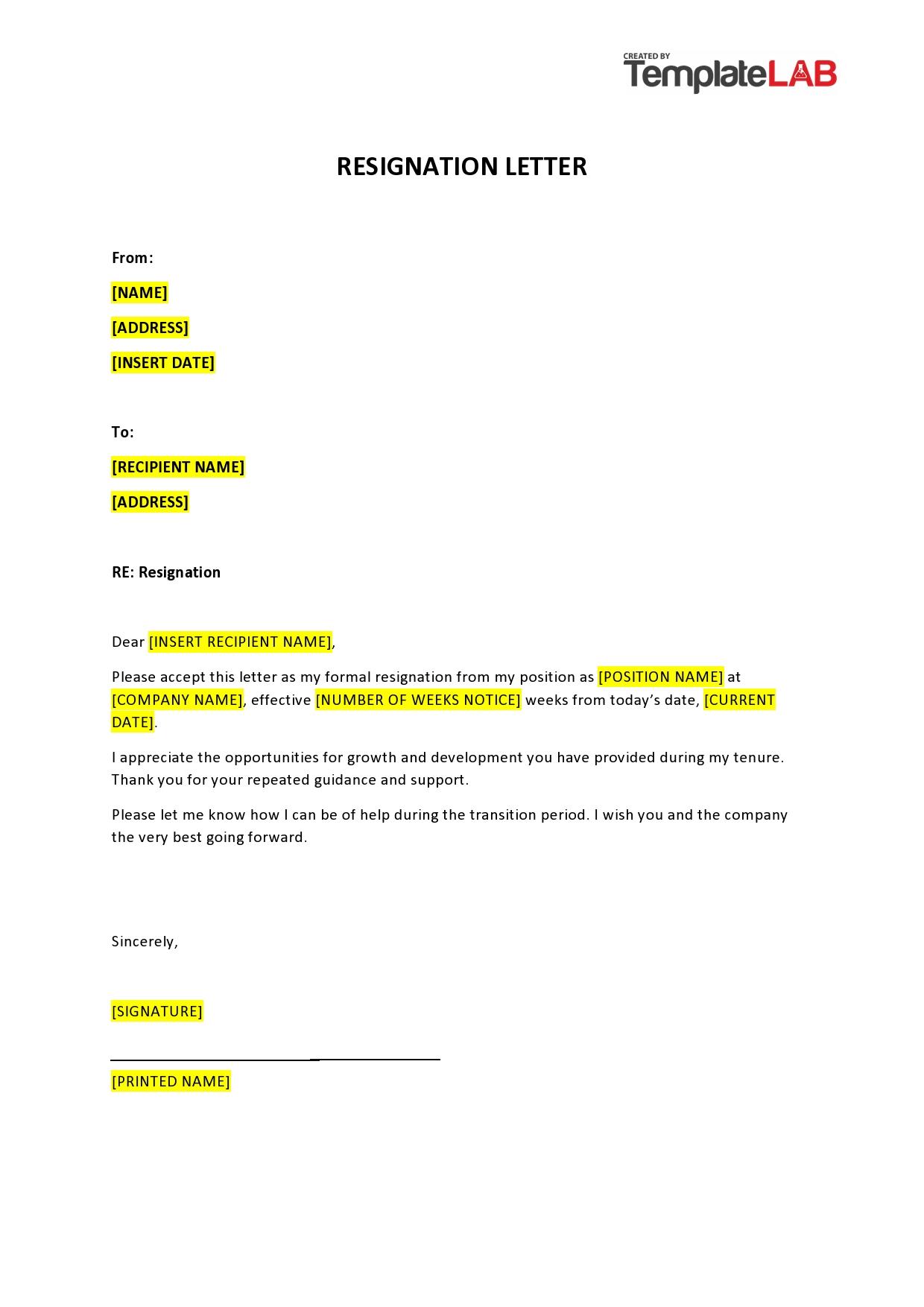Introduction
Giving a two-week notice is a common courtesy when resigning from a job. It provides your employer with ample time to transition your responsibilities and find a suitable replacement. In this article, we’ll discuss the importance of a proper two-week notice, how to write one effectively, and what to expect during the process.
Why Give a Two-Week Notice?
Professionalism: A two-week notice demonstrates your professionalism and respect for your employer.
How to Write a Two-Week Notice

Image Source: templatelab.com
1. Start with a Salutation: Address your letter to your immediate supervisor or HR department.
2. State Your Resignation: Clearly state your intention to resign and the effective date.
3. Express Gratitude: Thank your employer for the opportunities and experiences you’ve gained during your time there.
4. Offer Assistance: Indicate your willingness to help with the transition process, such as training your replacement or completing ongoing projects.
5. Provide Contact Information: Include your updated contact information in case your employer needs to reach out to you in the future.
6. Close Professionally: End your letter with a professional closing, such as “Sincerely” or “Best regards.”
What to Expect After Giving a Two-Week Notice
Exit Interview: Your employer may schedule an exit interview to gather feedback on your experience and identify areas for improvement.
Conclusion
Giving a two-week notice is a crucial step in the job resignation process. By following the guidelines outlined in this article, you can ensure a smooth transition and maintain a positive professional reputation. Remember to express gratitude for your time at the company and offer to assist with the handover of your responsibilities.
FAQs
1. Is a two-week notice legally required? While not legally mandated in most cases, a two-week notice is considered standard practice in professional settings.
2. What if my employer asks me to leave immediately? If your employer requests you to leave before your last day, discuss the possibility of a severance package or other arrangements.
3. Can I change my mind after giving a two-week notice? While it’s possible to withdraw your resignation, it’s best to avoid doing so unless there are compelling reasons.
4. Should I include reasons for my resignation in the notice? It’s generally not necessary to provide detailed reasons for your departure in the two-week notice. However, you may want to discuss them privately with your supervisor.
5. How can I handle a difficult exit if I’m leaving on bad terms? Try to maintain a professional demeanor and avoid engaging in negative behavior. Focus on the positive aspects of your time at the company and seek support from friends or family if needed.
Two Week Notice